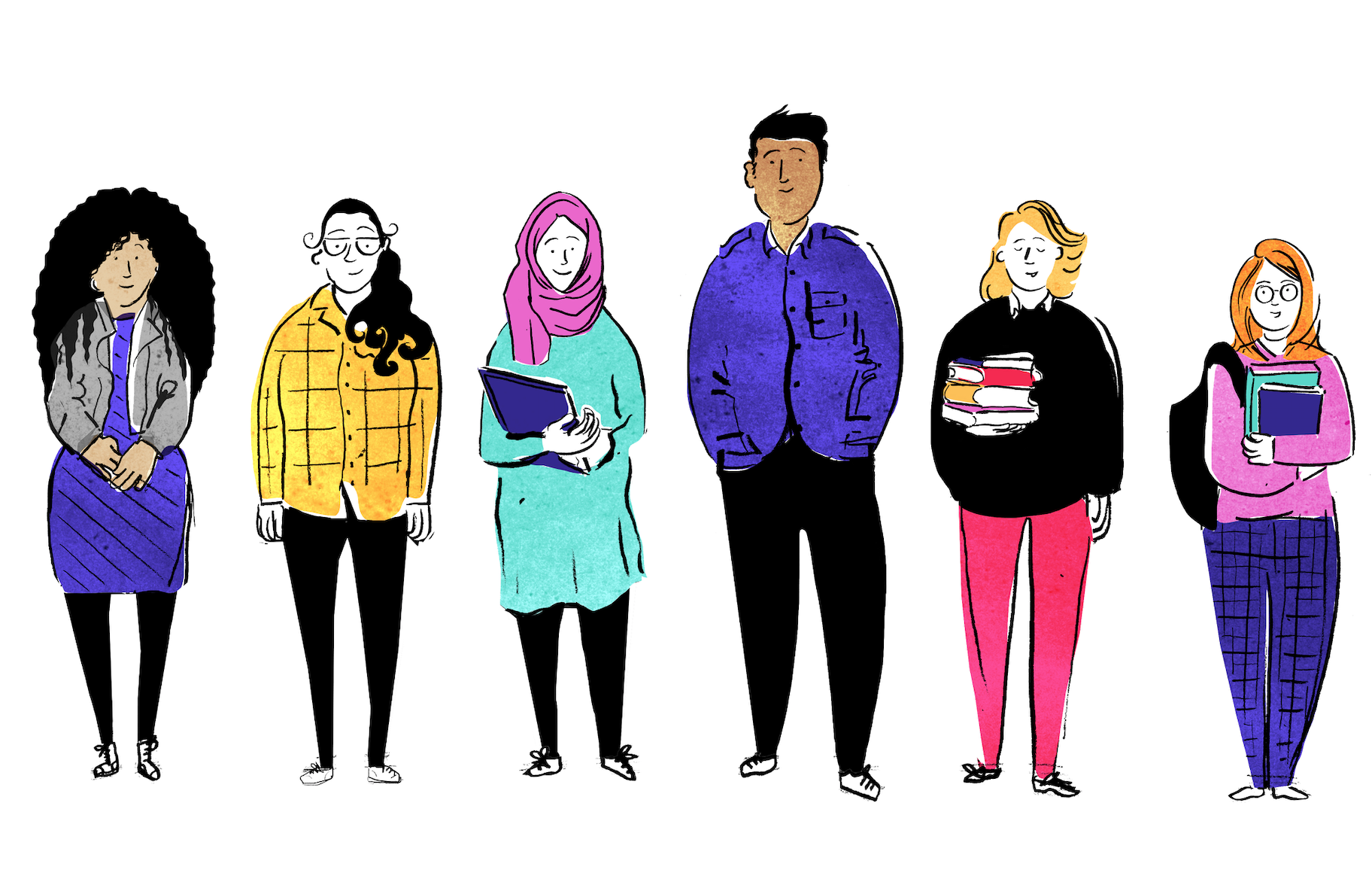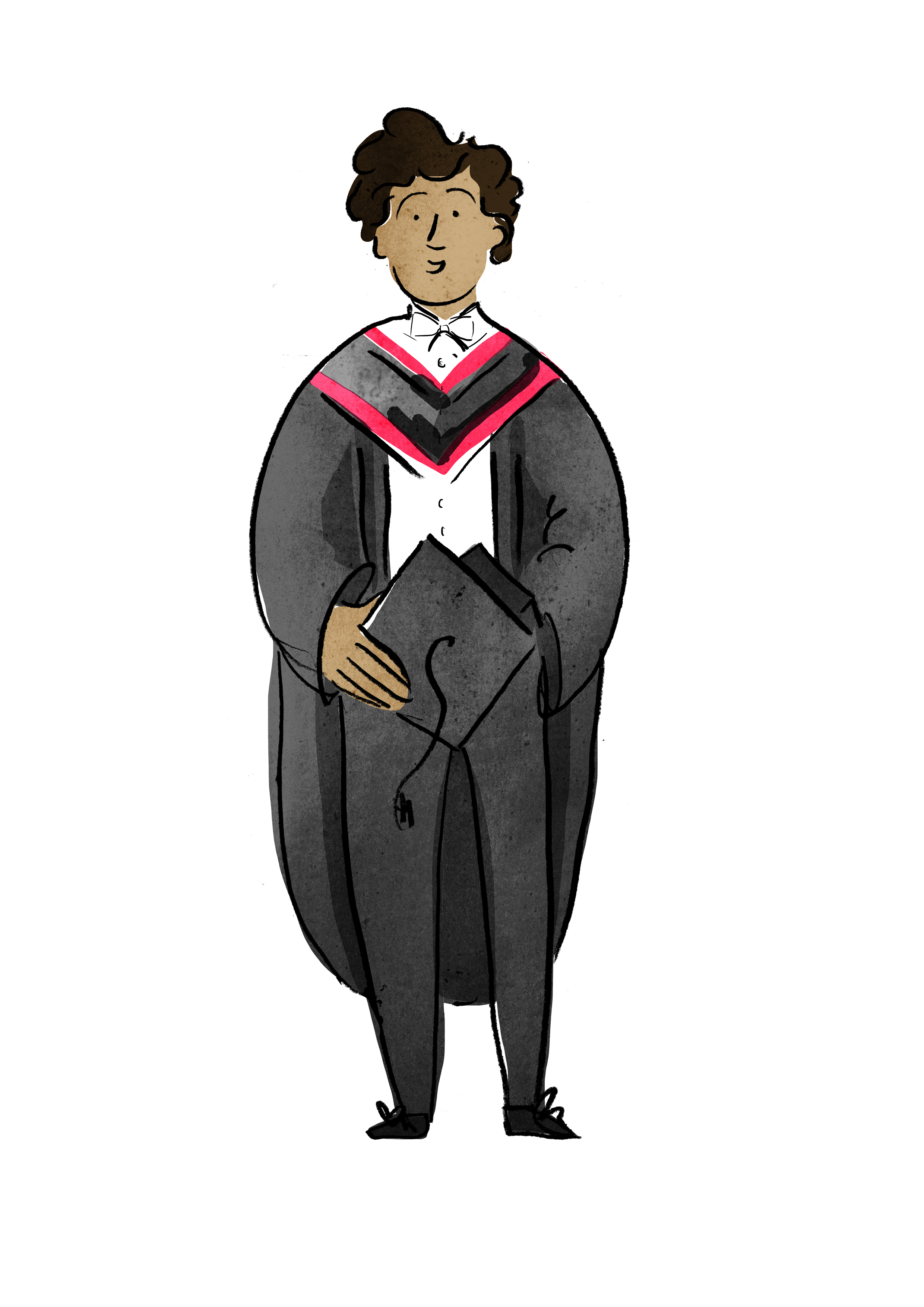Your teen’s UCAS application is a new and daunting process. If all goes well, they’ll get a place at a great university and move on up from there. In the case that things don’t go to plan though, they can still find a place through Clearing, or take a gap year and reapply next time.
Here at MyTutor, we’ve made a one-stop guide for everything you need to know about the whole UCAS process. From filling in their name to choosing courses, have a look below for everything you need to know.


- Personal details
- Choosing universities and courses
- Filling out the education section
- Employment
- How to write the best personal statement
- Getting references
- Submission
- Mentorship
1. Personal Details
Filling in the personal details section should be pretty straightforward, but you can still get caught out. Accurate information must be entered in the “given name(s)” box, or there’s a risk of running into issues later if a proof of identify is required. You can enter a nickname under “preferred first name”.
In the contact details section, ensure to give an email address that’s checked regularly. Some emails sent by UCAS need time-sensitive responses or contain information about deadlines, so opportunities can be missed if an email goes unread. This could also be a good time to encourage your teen to retire any joke email accounts they set up years ago (anything like ~*~beautiful_stranger~*~@aol.com for example) in favour of a more sensible firstname.lastname@gmail.com. Universities give each student a new email account when they enrol, but having a professional-sounding personal address is good practice. It’ll also help to keep official course-related communications separate from the weekly mailing lists of societies or sports and social activities they take up at university.
Reference numbers
The reference numbers section isn’t compulsory, but keeping a note of any relevant information used can come in handy in years to come. For example, a unique learner number digitally tracks a student’s secondary school qualifications and achievements. Some internship or job applications give the option to enter this directly, which can save time on digging out old school certificates from the attic.
Passport details & visas
UCAS’s advice regarding visas is quite brief, and a bit vague.
“If you need a student visa to study in the UK, select Yes. If you do not need a student visa, select No”. Thanks, UCAS.
In a nutshell, non-EU citizens are likely to need a student visa to study in the UK. Individuals with leave to remain, such as refugees or dependants of EU citizens, may be exempt to this rule, depending on their personal circumstances. If you’re not sure, you should look into it as soon as possible. Sometimes a course might need to have been offered and accepted before a visa application can begin.
Student support
Understanding student support – how a degree is funded – can be intimidating for teens and their parents, especially if it’s their first step into the adult world away from home.
But for the majority of UCAS applicants, funding is simpler than it may appear. Roughly 80% of students use a loan to pay for their degree. There are also lots of different combinations of loans, bursaries and other funding that can make up how a student pays for their fees and living costs. Government grants are available for students from low-income households, and sponsorship is available through the army, the NHS and a number of private companies.
A little extra income can also help to make ends meet. They might want to plan to find a part-time job to top themselves up (so having their CV ready before they start is good to remember). Tutoring with MyTutor is a great part-time job for many students! Your child can apply here.
Disabled access
Although lots of institutions have improved recently, sadly not all University buildings are equipped to meet the needs of students with disabilities. Letting UCAS and the universities know any needs early on can help things flow smoothly during the application process, interviews and open days.
2. Choosing universities and courses
Once they’ve chosen the subject they want to study, they need to decide on up to five universities to apply to. There’s lots to consider here. Your teen should have a close look at each university’s course breakdown to look at what exactly they’ll be studying there, and if they want to go there. It’s worth thinking about location too – some kids want to stay close to home so they can visit on weekends (laundry in tow), while others want an adventure on the other side of the country. If they’re passionate about their sport, want to get into student theatre or are keen to be near museums and galleries, they can narrow down their choices that way too.
It’s also really important that they choose a range universities who ask for different entry grades. If their top choices are Edinburgh and Manchester, who both ask for AAA in many subjects, they should also apply for a university with a lower grade offer. That way, if they miss their target grades on results day, they can still have an offer to fall back on and head off there in September. Open days are well worth the effort if they get the chance – choosing one or two places to visit before they make their choices can make decision-making much easier. If they can imagine themselves in the place, it’ll motivate them to work towards getting there too.
3. Filling out the Education section
UCAS’ list of institutions is very comprehensive, from Sandringham School in Zimbabwe to Sandringham School in, well, Sandringham. So completing the education section should be straightforward.
The same goes for qualifications. Some qualifications give the option to add module details too. Depending on the degree course, universities can ask applicants to add this additional information when completing their education details. These courses should be easily identifiable from the information provided by Universities, but further information can be gathered by contacting Universities’ admissions offices directly. An applicant can also use module results as an opportunity to exhibit subject expertise, especially if the degree subject doesn’t align exactly with their high school subjects. For example, an application to study Neuroscience can be supported by including Biopsychology module marks completed for their Biology A level.
4. Employment information
The employment section of UCAS is optional, and for most degrees, school leavers aren’t expected to have work experience. Applications to medical, dentistry and vet schools are a common exception to this rule. However, within this part of the application ‘employment’ refers to paid work only. Any relevant unpaid volunteer experience is best highlighted within a personal statement.
5. How to write the best Personal Statement
The UCAS personal statement is the most important part of the form. It’s how your teen can make themselves stand out from the crowd and show how they’re unique. University admissions tutors normally have just a few minutes to spend reading each one, so they should have an impact in the first couple of sentences. Avoid cliched phrases like “from a young age, I have always been interested in…” and instead focus on what it is about the subject that they find most exciting.
In the bulk of the statement they should talk about how things they’ve done (books they’ve read, talks they went to, work experience and volunteering) are relevant to the subject they’re applying for. Applicants who let their passion and personality shine through are likely to stand out. That said, keeping a professional tone is important too (i.e. don’t try to make jokes!).
6. References
School leavers will probably have a teacher who’ll write them a character reference. Your teen should make sure that’s confirmed with the school long before the deadline. Applicants who’ve left school, or those who are planning to take a gap year can also use an old teacher as a reference.
Schools are provided with a buzzword, which can be used when setting up a UCAS application to affiliate the two. Individual applicants not presently or retroactively affiliated with a registered institution will need to supply their own reference. It’s important to choose a professional who has a strong knowledge of their academic history and abilities. It’s worth noting that the use of family and friends is normally not allowed, and this can result in the application getting cancelled. Getting a reference from a suitably professional organisation – a teacher, an employer or someone who they volunteered for – will make the reference more valuable and credible.
7. Submission
Applications for most undergraduate courses should be completed by January 15th. This is apart from Oxford, Cambridge and medical school submissions (including hopeful vets and dentists) who have mid-October deadlines.
UCAS keep an updated list of the key dates for all final deadlines, but, where possible, submitting early can help. An early application can increase the chances of gaining an offer or an interview, and it can mean that they hear back from their choices earlier. It also gives them more precious time to think about where they’d like to go before deciding.
8. Mentorship
Even with all the facts and tips to hand, UCAS is still a big and intimidating process. Getting help from someone who’s gone through the very same thing can save the day. Especially for medical school, Oxbridge, or applications that involve special tests (like Law and some languages degrees). Whatever your child’s aiming for, we can match them with one of our tutors on that course at that university to support their application process (including interview technique if needed).
So if your child wants to study English at Oxford, we’ll match them with an English student at Oxford. Medicine at Birmingham? We’ve got tutors for that. Engineering at Exeter? You get the picture. Our friendly and expert tutors have been there before and know what makes the admissions teams tick. They made it there themselves and they love helping teens do the same.
Click here to search for the perfect UCAS tutor, or get in touch and we’ll match you with someone. Call us on 0203 773 6024 or email support@mytutor.co.uk.


Good luck to everyone applying this year!



